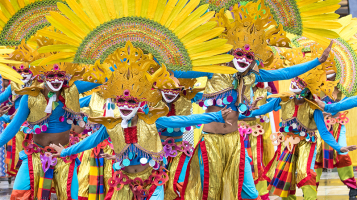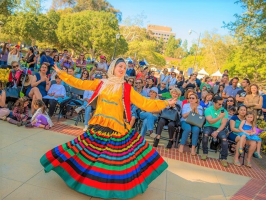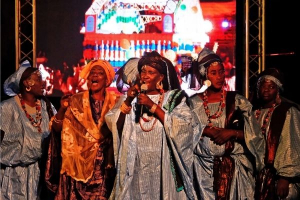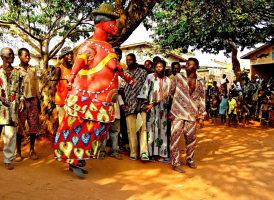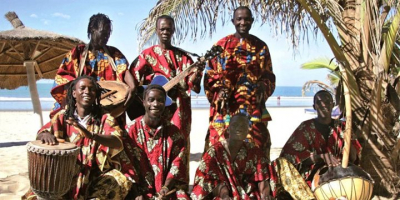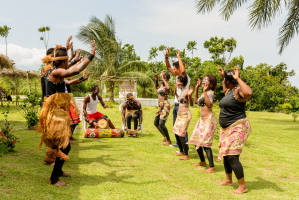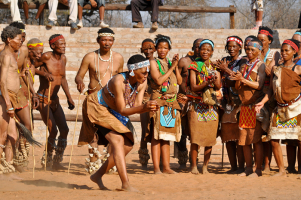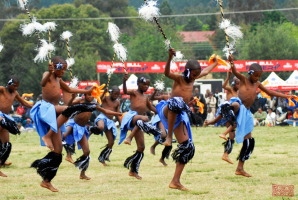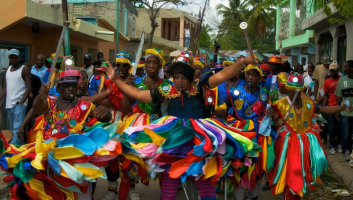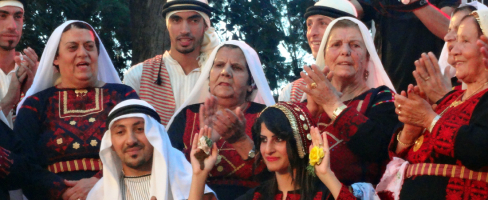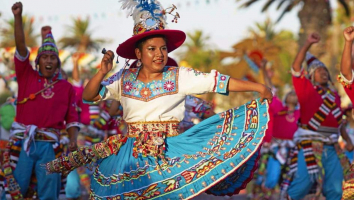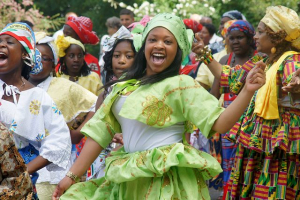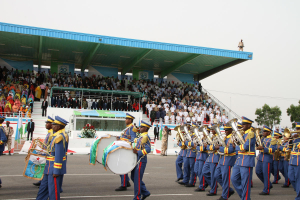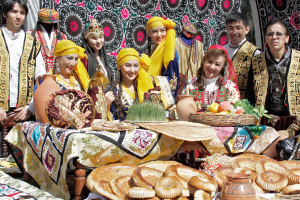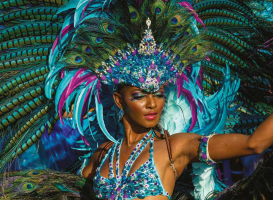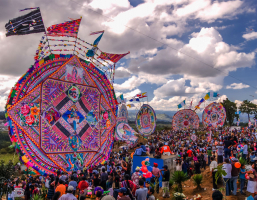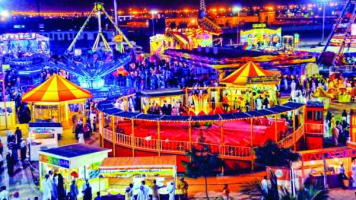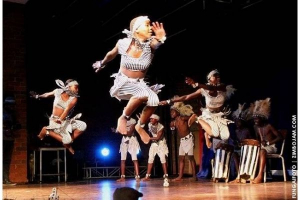Top 7 Most Famous Festivals In Zambia
In Zambia, there are over 20 annual traditional celebrations that exhibit customs, social life, rituals, oral history, material and spiritual culture, and you ... read more...should attend one if you get the chance. They offer a unique perspective on a traditional culture that has been passed down through the generations. Here are top 7 most famous festivals in Zambia that you should visit
-
Kuomboka is the most famous festival in Zambia, which marks the end of the rainy season.
Because of the flooding of the Zambezi plains, the event, dubbed "one of the last major Southern African ceremonies," became required.The ceremonial migration of the Lozi monarch (litunga) from his dry season home at Lealui to his rainy season palace at Limulunga is known as Kuomboka, which means "get out of the water." The litunga, dressed as a Victorian envoy, is escorted down the river by a flotilla of barges, complete with musical accompaniment and, of course, plenty of food.
It's a vibrant and thrilling event that draws thousands of visitors from all around the world to see Zambian culture at its best. The Kuomboka ceremony, which dates back over 300 years, is surrounded by fascinating tales and legends. The royal Maoma drums, which reverberate around the royal city the day before Kuomboka, precede it.April is the ideal season to see numerous animals and birdlife near the swollen Luangwa River, and April to the end of May is the finest time to visit Zambia's Bangweulu Swamps for possible views of the elusive shoebill stork, black lechwe, and innumerable waterbirds.
Date: at the end of the rainy season (anytime from February to May)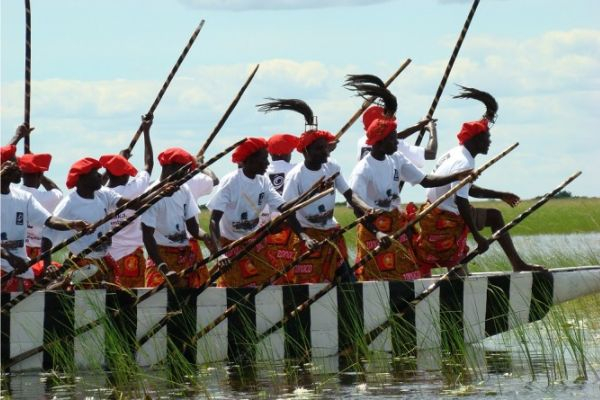
Photo: binoandfino.com 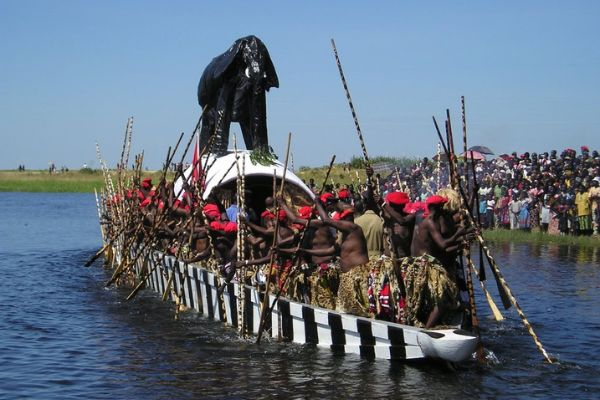
Photo: binoandfino.com -
This is a prominent August celebration and one of the most famous festivals in Zambia (The Day of Mize). The Luvale people of North Western Province commemorate the Likumbi Lya Mize ritual. There are three primary Luvale ceremonies. Every year in August, the Zambezi District of Zambia's Northwestern Province becomes a hive of activity as Luvale speakers from all over the country gather to celebrate the Likumbi Lya Mize traditional ceremony.
'Likumbi Lya Mize' means 'ceremony of the Mize,' and it is the name of the Luvale's headquarters, which is located in Zambezi, North Western Province. The event lasts around a week and involves activities including dancing by makishi (masked male dancers) and females who have completed the wali initiation rite, speeches by the chief and government officials, and drumming.
The Makishi Masquerades are the highlight of the Likumbi Lya Mize ceremony. The Makishi Masquerades are tied to the Mukanda, an initiation process in which boys are recruited and trained for six to a year, during which they experience various rites of passage into manhood. Learning survival skills, hunting, learning about women, how to be a good husband, and fatherhood are all part of this. This represents the transition from childhood to maturity.
The Makishi masquerades and Mukanda were awarded a diploma by the United Nations Educational, Scientific and Cultural Organization (UNESCO) in 2005 for their magnificent cultural presence and artistry, making them a masterpiece of world cultural heritage for posterity, thus safeguarding the two practices.
For almost 60 years, the Likumbi Lya Mize Ceremony has been kept authentic to ensure correct cultural transmission from one generation to the next.
Date: In the month of August every year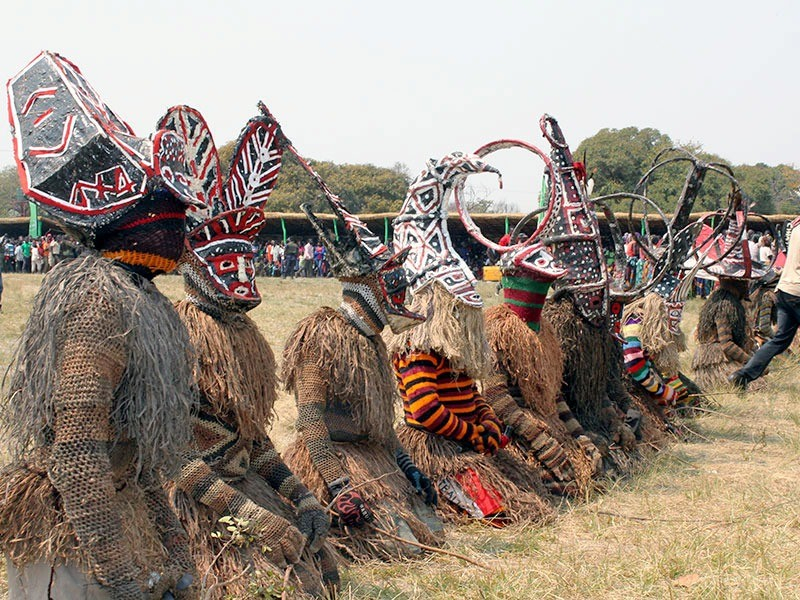
Photo: www.znbc.co.zm 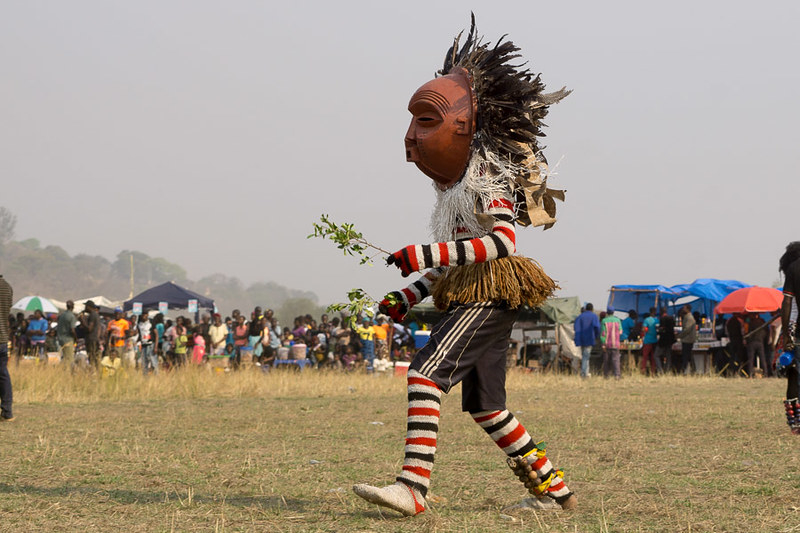
Photo: www.flickr.com -
The Kulamba Traditional Ceremony is an annual event held in Zambia.. Each year, near the end of August, Mkaika hosts the ceremony.
Subordinate Chewa chiefs from neighboring Malawi and Mozambique pay tribute to the paramount chief Kalonga Gawa Undi at his capital in Mkaika, which is located in the Katete region of Eastern province, during the Chewa people's Kulamba ritual. There is dancing by freshly initiated Gule Wamkule, a masked society of dancers, after the chiefs have presented their state reports on their various chiefdoms.An annual initiation ceremony for young girls who have reached puberty is also held as part of the Kulamba rite. The 'anamwali,' or young females, have been imprisoned and have been taught the skills and obligations of womanhood.
Date: the last Saturday of August
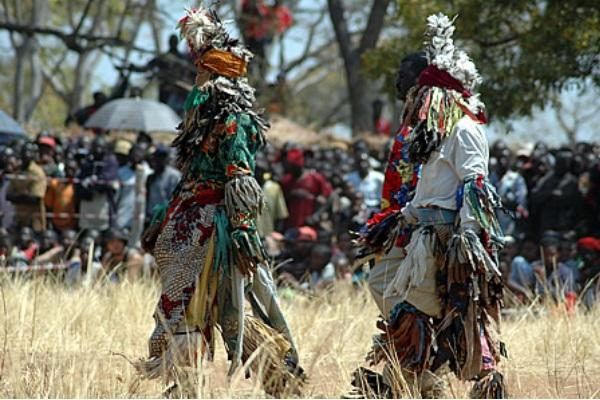
Photo: www.musicinafrica.net 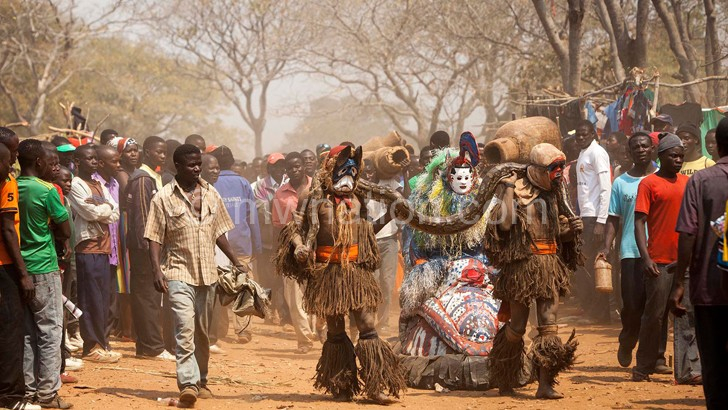
Photo: breezefmchipata.com -
This celebration, which began in 1994, brings together traditional rulers from all of Zambia's provinces, as well as guests who are allowed to learn about their tribe's traditions. Musicians, painters, poets, and dramatists are all represented at this event.
Livingstone Festival is one of the most famous festivals in Zambia. In fact, it is Zambia's largest celebration. The festival is held in this ancient city and strives to showcase Zambian talent in all areas of the arts. It also hopes to bring in well-known international artists. As a result, travelers make it a point to visit Zambia during the Livingstone Festival. Street carnivals, cultural panoramas, dance lessons, traditional cuisine tastings, crafts displays, supper dances, modern music performances, and a boat excursion on the Zambezi River are just a few of the highlights.The streets of Livingstone are strewn with performance artists, theater troupes, music groups, jugglers, and clowns during the Livingstone Festival in Zambia. The festival's location is within a few kilometers from the Victoria Falls. This celebration is made even more popular by the presence of this well-known tourist attraction. In most years, the festival takes place in August.
The event in 2008 featured a variety of attractions. Anne Bean and Zhenya Iljon, two well-known British performance artists, devised a remarkable mix of music, sculpture, and performance. Andrew Buckland and Lionel Newton, two award-winning South African actors, also performed at the event. They performed The Wellbeing, which gained critical acclaim in Stockholm and at the Harare International Festival of the Arts.
Date: every March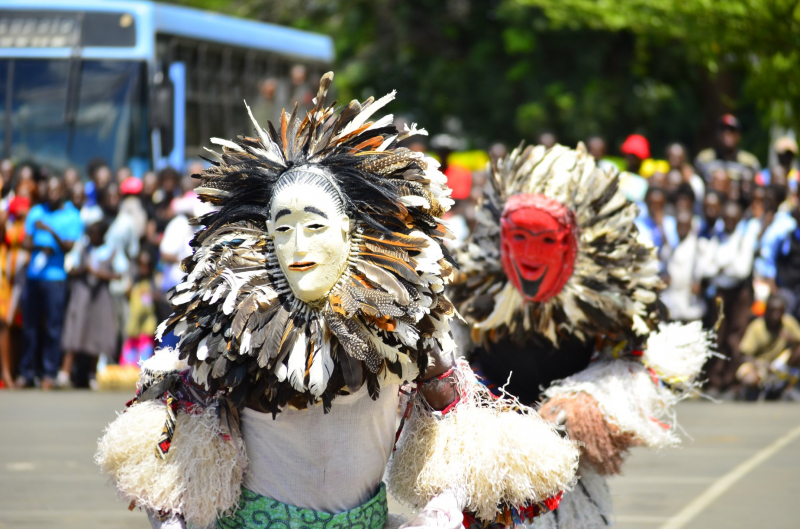
Photo: facebook.com/Licafzambia/?ref=page_internal 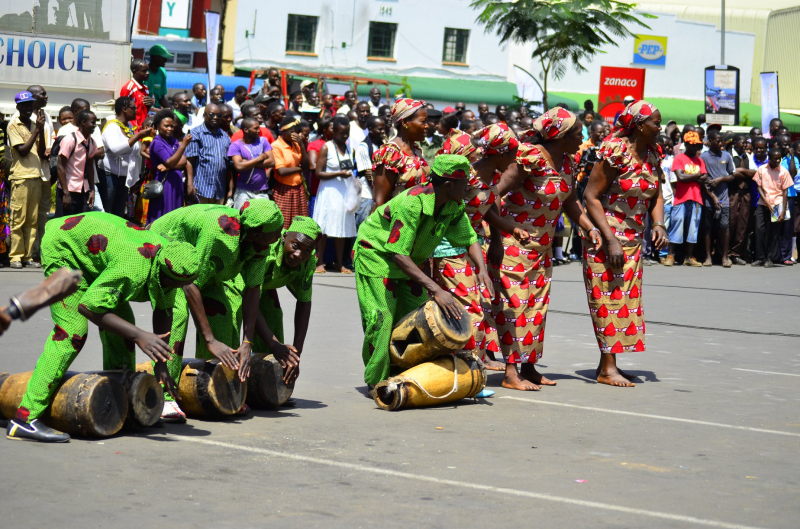
Photo: facebook.com/Licafzambia/?ref=page_internal -
Umutomboko is a Lunda ceremony celebrated at Mwansabombwe in Luapula Province to commemorate the arrival of the Lunda and Luba people from Kola, now Congo DR, in Zambia.
The Umutomboko or Mutomboko ritual is held by the Lunda and Luba people of Luapula region to commemorate their pre-colonial achievements.
Umutomboko translates to "victory dance" or "conquest dance." When telling the story of Umutomboko, one must connect it to the days when the Lunda crossed the Luapula River into Zambia, battling their way through and conquering weaker and lesser tribes in the process. The Lunda crossed the Luapula River into Zambia at chief Matanda's hamlet in Mansa district, according to numerous historical texts.
On the last Saturday of July, the Umutomboko celebration is held in Mwansabombwe district, Mwata Kazembe's headquarters. His Royal Highness Mwata Kazembe's passionate dance of conquering, performed every year in the last week of July, is a mirror through which the Lunda Kingdom's history and cultural heritage are reflected.
Date: Last Saturday of July.
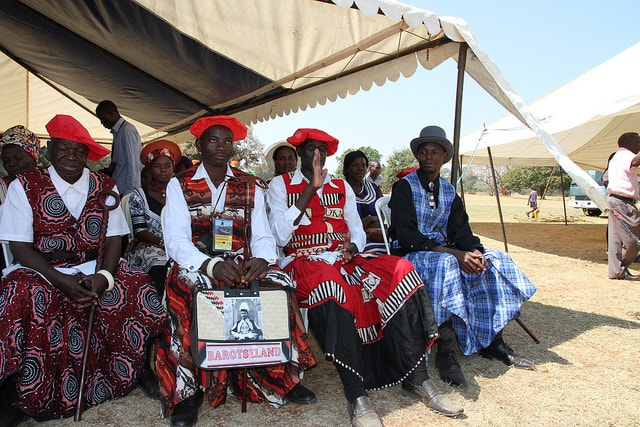
Photo: theculturetrip.com 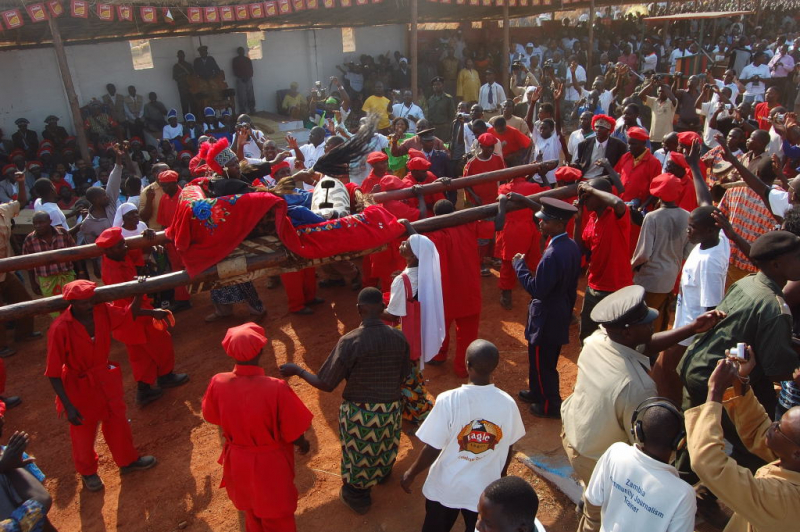
Photo: www.zambiatourism.com -
After young men have completed their initiation, the Makishi mask festival is celebrated. The young males are then given masks that they must wear throughout the procedure. Each mask has its own symbolism, but the Makishi, which depicts an ancestor who returns to the living world to help the boys, is the most important.
Masks are employed in African festivities all throughout the continent. Traditional masks represent spirits, and many think that the mask contains the spirit's power. The Chokwe people of Angola, the Democratic Republic of Congo, and Zambia created this mask, which depicts an ancestor ghost known as Cikunza. In festivals and initiation rites, this spirit plays a significant part.
Because the shape of an antelope's horn is similar to that of the mask, Cikunza is connected with hunting. It can be worn by an adult. It's made of woven plastic and is painted black with red and white stripes. A fringe of fibers at the bottom hides the wearer's neck. When the Cikunza dances, the tassel at the top of the mask spins around. In a threatening manner, the mouth is open.
Organized by: Communities in North-Western and Western Provinces of Zambia
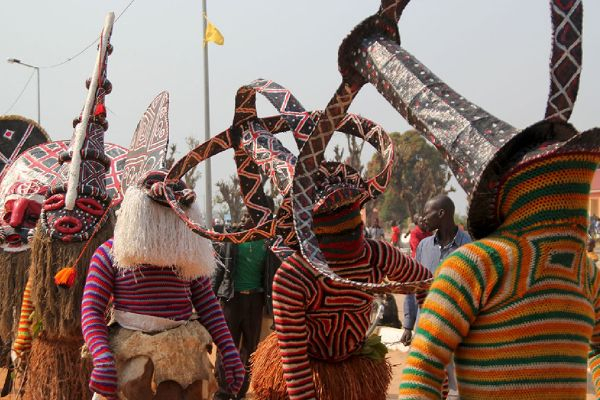
Photo: www.semanticscholar.org 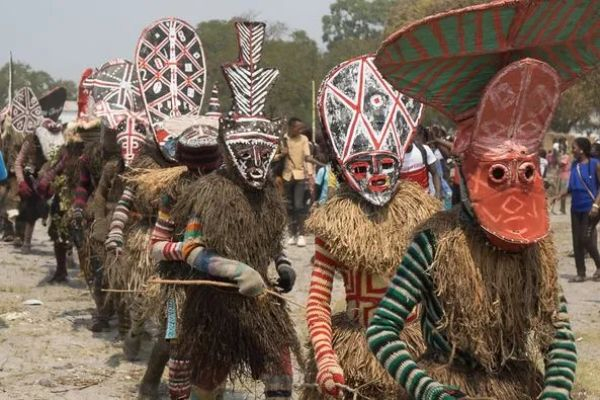
Photo: zambianobserver.com -
The Ngoni of Eastern Zambia celebrate the N'cwala celebration, which is regarded one of the most famous festivals in Zambia, at Mtenguleni hamlet near Chipata.
It is a celebration of the year's first harvests. The first crops of the season are blessed by Paramount Chief Mpezeni. After that, a bull is sacrificed, and some of its blood is drained and given to the chief. Following that, dancing and fake combat between the impis (warriors) reenact the several conflicts the Ngoni fought and won during their journey from South Africa to Zambia. In February, the N'cwala ceremony takes place.
The Nc'wala traditional ritual inspires a slew of events, including the Ungoni Exhibition, hosted by the Ministry of Tourism and Arts at Luangwa House, and trips to the Nsingo Community Museum, where visitors go in droves to learn more about the Ngoni people's history.
Date: last Saturday of February
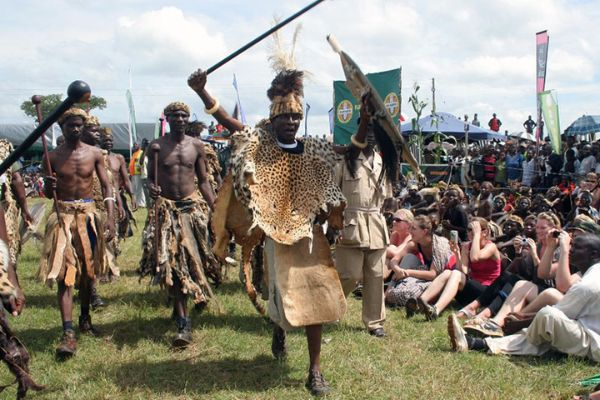
Photo: www.mwebantu.com 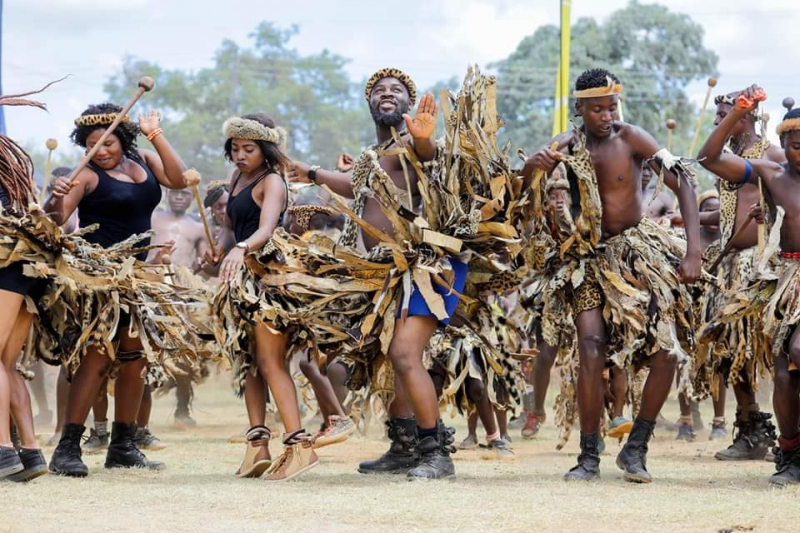
Photo: facebook.com/Ncwalaofficialpage/?ref=page_internal









